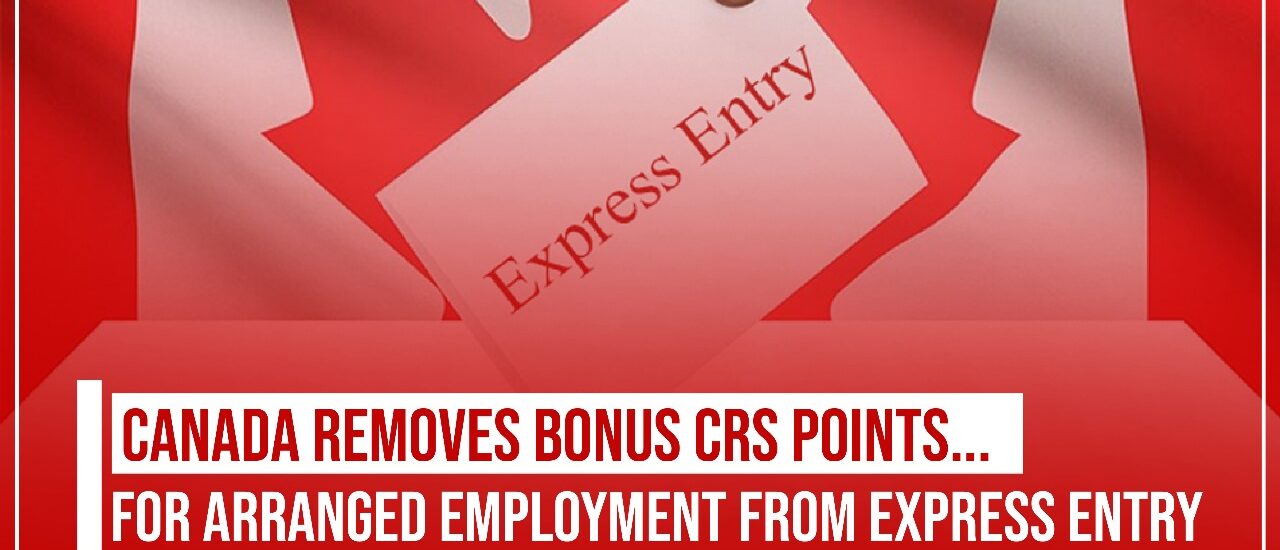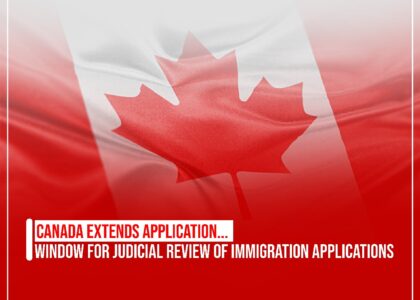In a significant change to Canada’s Express Entry system, as of March 25, 2025, candidates will no longer receive additional Comprehensive Ranking System (CRS) points for having a valid job offer, including offers backed by a Labour Market Impact Assessment (LMIA). This update marks an important shift in Canada’s immigration process and could have a significant impact on candidates seeking to immigrate through Express Entry. Below, we delve into the details of this change, its potential effects on Express Entry candidates, and the reasoning behind it.
What is the Comprehensive Ranking System (CRS)?
The Comprehensive Ranking System (CRS) is a points-based system used by Immigration, Refugees and Citizenship Canada (IRCC) to assess and rank candidates in the Express Entry pool. It is designed to evaluate a candidate’s eligibility for one of the three federal immigration programs under Express Entry:
- Federal Skilled Worker Program (FSWP)
- Canadian Experience Class (CEC)
- Federal Skilled Trades Program (FSTP)
CRS points are awarded based on factors such as age, education, work experience, language proficiency in English or French, and additional factors such as having a job offer or provincial nomination. In the past, a valid job offer would give candidates an additional 50 or 200 points, depending on the nature of the job offer.
Impact of the Removal of CRS Points for Arranged Employment
The recent policy change means that Express Entry candidates who previously received bonus points for having a valid job offer will now see their CRS scores decrease by 50 or 200 points. This is because the government has removed the section of the CRS that awarded additional points for arranged employment. While this will reduce the chances of candidates with valid job offers receiving an Invitation to Apply (ITA) for permanent residency (PR), it simultaneously increases the chances for candidates without a job offer, as their CRS scores remain unaffected.
For example:
- Andrew: A candidate with a job offer and 50 extra points would have had a CRS score of 540.
- Anita: A candidate without a job offer would have had a CRS score of 500.
After the change, Andrew’s score would drop by 50 points to 490, while Anita’s score remains at 500. In this scenario, if the CRS cutoff in the next draw is 495, Anita would receive an ITA, while Andrew would not.
This shift may result in a more balanced pool of candidates, with an increased number of applicants who do not have job offers but still meet the qualifications for immigration.
Why Did Canada Remove Job Offer CRS Points?
The change in CRS points comes as part of Canada’s broader efforts to improve the integrity of its immigration system. The removal of additional points for a job offer was initially proposed by former Immigration Minister Marc Miller in December 2024.
One of the key motivations for this change is to reduce fraud within the immigration process, particularly the practice of candidates attempting to purchase an LMIA to secure a job offer. The Canadian government has expressed concern over the potential for misuse of the LMIA process and the financial exploitation of applicants. By removing this incentive, Canada aims to ensure that job offers used for immigration purposes are genuine and not artificially inflated for the sake of gaining an immigration advantage.
Moreover, the government’s crackdown on immigration fraud is in line with broader measures that include creating a compensation fund for victims of unethical immigration consultants. This change is viewed as part of a larger initiative to uphold the integrity of Canada’s immigration system.
Other Changes in Ministerial Instructions for Express Entry
While the removal of points for a valid job offer is the most significant change, the March 25, 2025 update to the Ministerial Instructions also saw modifications in other areas, including changes related to arranged employment for physicians.
The update eliminates a provision that allowed physicians’ offers of employment for less than a year to qualify, provided that the job offer came from a provincial government or healthcare organization. This change was made to clarify the qualifying conditions and streamline the process for healthcare professionals seeking to immigrate to Canada.
How Does the CRS System Work for Express Entry Candidates?
The CRS system assigns candidates points based on several factors, with the maximum possible score being 1200 points. These factors include:
- Age: Points are awarded based on the applicant’s age at the time of application, with younger candidates generally receiving more points.
- Education: Applicants can earn points for the highest level of education completed, with additional points for Canadian educational credentials.
- Language Proficiency: Language skills in English and French are assessed through language tests, and higher scores can significantly boost CRS points.
- Work Experience: Points are awarded based on the applicant’s work experience in a skilled occupation, either inside or outside of Canada.
- Additional Factors: Points can also be awarded for factors such as French language skills, having a Canadian sibling, or a provincial nomination.
Previously, candidates who had a valid job offer would be awarded 50 or 200 extra points, making a considerable difference in their CRS ranking. This gave those candidates a significant advantage over others, especially in highly competitive draws.
What Does This Change Mean for Future Express Entry Draws?
With the removal of bonus CRS points for arranged employment, the competitive landscape of Express Entry will shift. Candidates with a valid job offer will see their CRS scores decrease, potentially reducing their chances of receiving an ITA in future draws. However, those who do not have a job offer but otherwise meet the qualifications for permanent residency will likely see their chances of receiving an ITA increase due to the overall decrease in scores within the pool.
This change will likely have a long-term impact on the composition of the Express Entry pool and could result in lower CRS cutoffs for candidates without a job offer, particularly in draws that are not focused on provincial nominations.
How Mansory Immigration Consultants Can Help
At Mansory Immigration Consultants, we understand that navigating the Express Entry system can be complex, especially with recent changes to the CRS criteria. Whether you have a valid job offer or not, we can help assess your CRS score and guide you through the process to improve your chances of receiving an ITA for permanent residency.
Our experienced consultants can assist you with:
- Assessing your CRS score: We’ll help you understand your current CRS score and suggest ways to improve it.
- Job Offer Strategy: If you have a valid job offer, we can advise you on how it impacts your score and explore other pathways to boost your points.
- Provincial Nominee Programs (PNP): If you’re looking for ways to enhance your chances, we can help you understand and apply for PNP nominations, which can give you a significant CRS boost.
- Document Preparation: We’ll guide you through the process of submitting your documents and application to ensure everything is in order.
If you’re considering immigrating to Canada through Express Entry, contact Mansory Immigration Consultants today to learn how we can help you achieve your Canadian immigration goals.
Conclusion
The removal of bonus CRS points for a valid job offer is a significant change in Canada’s immigration landscape. While it may reduce the chances for candidates with job offers, it also creates new opportunities for those without one. Understanding how these changes impact your CRS score is crucial in preparing your Express Entry application. At Mansory Immigration Consultants, we are committed to providing expert guidance to help you navigate these changes and enhance your chances of success in the Express Entry pool.





